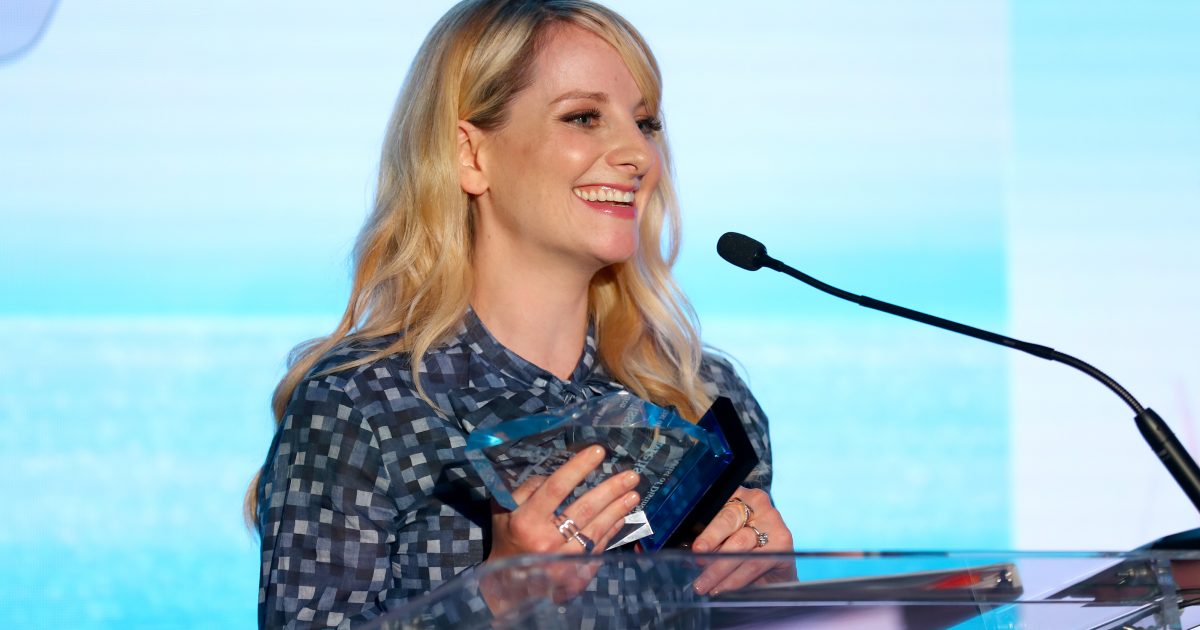From the TV Screen to the Fight Against Childhood Cancer
- Actress Melissa Rauch of The Big Bang Theory has partnered with a family who lost their son to a rare form of brain cancer. He was only 5 years old when he passed.
- Rauch will run the U.S. chapter of a non-profit dedicated to carrying on the boy’s legacy and promoting research into the rare disease that took his life.
- Childhood cancer poses unique challenges not just for patients, but for the families who want to support them. Although treatment options for children have improved over recent years, the National Pediatric Cancer Association reports that only 4% of the money spent on cancer treatment and research every year goes to childhood cancer.
The 41-year-old opened a U.S. chapter of Oscar's Kids, an organization that she helped start with the parents of Oscar Keogh. Keogh was a five-year-old boy from Ireland who passed away from diffuse intrinsic pontine glioma (DIPG). The nonprofit's mission is to drive awareness and funding for this rare brain cancer, and support children and families who are battling it.
Read MoreCaring for a child who is battling cancer is incredibly difficult — while you want to be strong for them, its also an extremely emotional time.
When Oscar passed away from DIPG, Rauch began speaking with the Keogh family about starting a charity to continue his legacy and promote research on DIPG. They decided that the Keoghs would run the chapter in Ireland, while Rauch and her husband would oversee the chapter in the United States.
"Starting a nonprofit is a complete departure for me, and starting with a blank slate from nothing is something that has been exciting and also been a learning curve," Rauch said. "As far as my background, and not having experience running a charity, the only thing I can authentically say is that I had the passion for becoming an advocate for this cause."
What Is DIPG?
DIPG is a type of tumor that starts in the brain stem, according to St. Jude Children's Research Hospital. These tumors are called gliomas because they grow from glial cells, a type of supportive cell in the brain.
Most of these tumors, the site explains, "are not classified by grade because surgery to obtain tissue by biopsy or to remove the tumor is not safe because of the location of the tumor. When these tumors are biopsied, they are usually grade III or grade IV tumors, which tend to behave very aggressively. Most of the tumors are diagnosed by their appearance on MRI."
About 10% to 20% of all childhood brain tumors are DIPG or brainstem gliomas and they're more common in children between the ages of 5 and 10 years.
Unfortunately, St. Jude notes, the survival rate for DIPG remains very low.
Jayne Wexler discusses the pressure having a child with cancer can put on a marriage, and how she and her husband got through it.
Childhood Cancer
Treatment advances in recent decades have lead to 84 percent of children with cancer now surviving five years or more, according to the American Cancer Society. This is up from 58 percent from the mid-1970s.
But according to the National Pediatric Cancer Foundation, more than 95 percent of childhood cancer survivors have significant health-related issues because of the current treatment options, and only 4 percent of the billions of dollars spent each year on cancer research and treatments are directed towards treating childhood cancer in the United States. Since 1980, fewer than 10 drugs have been developed for use in children with cancer while hundreds of drugs have been created exclusively for adults.
Dr. Elizabeth Raetz, director of pediatric hematology and oncology at NYU Langone's Perlmutter Cancer Center, reminded us in a previous interview that there is still reason for hope.
"There are also targeted treatments and different immunotherapies that have been studied in adults and have now moved into clinical trials for children and there has been a great deal of excitement in the community about that," Dr. Raetz told SurvivorNet.
Still, navigating a child's cancer diagnosis can be tricky. Jayne Wexler's son battled acute lymphoblastic leukemia and now deals with heart disease as a side effect of chemotherapy. In a previous interview with SurvivorNet, Wexler explained that in addition to regular parent worries having a child with cancer means living with a whole new world of anxieties.
"My husband and I will always have fear," she said. "I don't think we can ever let go of that. Just when he was OK, then he relapsed, and then he had the bone marrow transplant … so there's always some sort of worry."
Wexler admits she tries to live for each and every day, but it is understandable that this does not always come easy.
"And I do try you hear people say this we do have to live each day and be thankful for what we have," Wexler said. "And it's hard to remember that when you're caught up … it's very hard to just sort of enjoy the moment, because we just don't know what's going to happen in the future."
Contributing: SurvivorNet staff
Learn more about SurvivorNet's rigorous medical review process.

